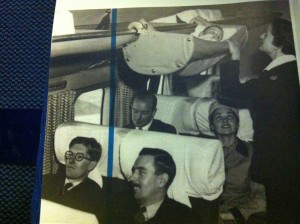A picture speaks a thousand words. Today, people multitask and run 5 windows on their machines and tablets concurrently and we have even less time to grab their attention with our message.
I think text is yesterday’s business and to engage we need pictures and headlines. If I created slides that were made up only of bullet points, what would the audience think? Would anybody concentrate for longer than a minute or two, before switching to reading messages on their phones, surf the web or look at what was happening on social platforms and completely ignore my presentation, no matter how compelling?
People respond to images, they like short videos and their brains are like filters. They block out the majority of information, so why do we send our customers and prospects long emails, pages of text and documents, and expect them to respond?
Take note how the market for short films is booming. At this year’s Oscars, “Fresh Guacamole”, at 1-minute-41-seconds, was the shortest movie ever to receive a nomination. It has no real characters, no dialogue, no traditional storyline, but got 8 million viewers on YouTube. There is a message in there for all of us.



